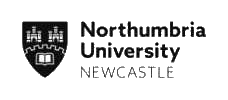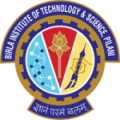About the school
The most common way to analyze brain imaging data collected during naturalistic stimuli is to use the Intersubject Correlation (ISC) method. Based on linear correlations between individuals, this method measures the level of similarity of brain activity.
By participating in the Summer School, you will acquire in-depth knowledge of the theoretical background of the ISC method, you will be given a step-by-step guideline in terms of how to conduct ISC analysis in practice and most importantly, you will have the opportunity to conduct your first ISC analysis in parallel with the tutor.
Day 1 (June 21)
11:00 – 11:30
Welcoming speech by Iiro P Jääskeläinen:
Introduction to naturalistic experiments
11:30 – 12:30
Introduction to intersubject correlation (ISC) analysis of fMRI data:
Definition, Computational approaches, Statistical inference (first-level and second-level
analysis), Interpretation
12:30 – 13:00
Lunch break
13:00 – 13:30
How to conduct fMRI ISC analysis in practice:
Getting familiar with the ISC toolbox
13:30 – 14:00
Talk by Enrico Glerean
Day 2 (June 22)
11:00 – 12:30
Case study 1:
How similarly the brains of individuals respond to a Sherlock movie clip?
12:30 – 13:00
Lunch break
13:00 – 13:30
Case study 2:
Does brain activity in males vs. females differ when viewing the same Sherlock movie clip?
13:30 – 14:00
Talk by Stefano Palminteri
Day 3 (June 23)
11:00 – 11:30
Intersubject representational similarity analysis:
Implementing individuals' behavioural data into your ISC analysis
11:30 – 12:30
Case study 3:
Do subject pairs close in age exhibit higher ISC than subject pairs with age gap?
12:30 – 13:00
Lunch break
13:00 – 13:30
Discussion: Overview of topics covered
13:30 – 14:00
Closing speech by Iiro P Jääskeläinen
Sample dataset
In order for the participants to get involved in an ISC analysis of a real dataset, we will analyze the Sherlock data (doi: 10.18112 / openneuro.ds002345.v1.0.1) containing 16 participants that watched 25 minutes of Sherlock. The data will have already been preprocessed.
Hands-on learning
The School will be interactive, ie “learning by doing”. Each theoretical session is followed by a practical one. Students are encouraged to be replicating the practice sessions in parallel with the tutor, although this is not mandatory.
Software and data
If you want to actively participate in the practice sessions, you need to have the following installed on your computer:
- Matlab
- ISCtoolbox
- The sample dataset
Recommended Reading
If you want to get familiar with the concept of ISC analysis before joining the School, you may read the following articles. However, joining the School with zero knowledge about ISC is totally fine.
- Hasson U, Nir Y, Levy I, Fuhrmann G, Malach R (2004) Intersubject synchronization of cortical activity during natural vision. Science 303: 1634-1640. [PDF]
- Nastase, SA, Gazzola, V., Hasson, U., & Keysers, C. (2019). Measuring shared responses across subjects using intersubject correlation. Social cognitive and affective neuroscience, 14 (6), 667-685. [PDF]










